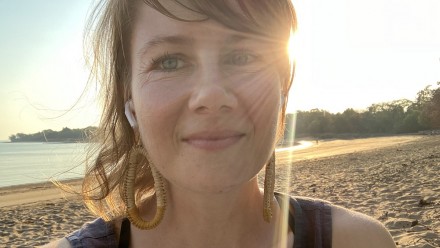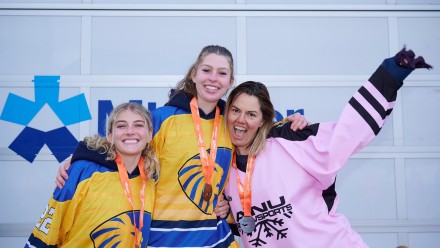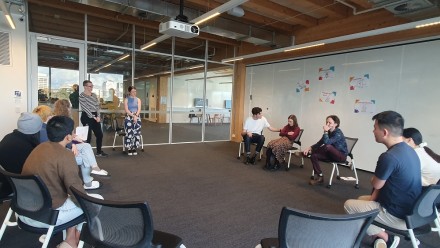Improving the patient experience through authentic connection
A stay in hospital or an illness that requires ongoing clinical care is never easy on the patient or their family.
Numerous studies focussed on the therapeutic relationship have found that when a doctor is able to connect authentically with their patient it leads to better outcomes for the individual.
To support students to acquire the skills to build meaningful therapeutic relationships with their patients, the ANU Medical Students’ Society, Global Health Society invited students from the Doctor of Medicine and Surgery to participate in two workshops hosted by The Humour Foundation to learn about the principles of being a Clown Doctor.
The workshops consisted of a variety of role-playing activities that revealed the importance of approaching patients with warmth, non-judgement and empathy, and highlighting the need to assess, adapt or change the communication style to accommodate the person receiving the message.
Justin Liu, a second year student said, “Humour can play a big role in promoting effective clinical interactions and bolstering the doctor-patient relationship. It’s not just about telling jokes, it is about tactfully employing the principles of self-awareness, curiosity, play and having spirit during interactions, as well as self-reflection after interactions.”
“Although in theory the principles are quite simple and straight forward, I found that they are often concepts that we tend to overlook. For example, the principle of curiosity is about ‘being interested, not interesting’. This involves understanding when to have a broad and open focus to all the information being shared with you versus understanding when to hone in on specific information being shared.”
For Emily Vohralik, a first year student, the importance of self-reflecting hit home with her.
“Before and after an interaction with a patient we should self-reflect. It’s important to be self-aware and to ask questions like 'How am I feeling?' and 'What percentage of me is here right now?', so we can be realistic about what we’re capable of giving. This then informs whether we might need to take a break or ask for help if we’re struggling.”
Emily added, “I’ve started using the skills I learned in our clinical skills tutorials. I’ve been reflecting on how I feel and perform during history-taking or physical exam practice, and trying to be more compassionate and curious towards myself so I can notice what to improve.”
“I’m also trying to approach patients with openness and curiosity and avoid stereotyping. By letting them answer my questions they can build up what kind of person they are for me, rather than me making assumptions that may be wrong.”
For Justin, the workshops have complemented but also extended what he has been learning in the clinical skills program.
“Attending this workshop has changed my perception on how I as a medical student and future medical professional communicate to patients and their families. It’s great to walk away with concrete skills that we can utilise in our daily interactions with patients.”
















